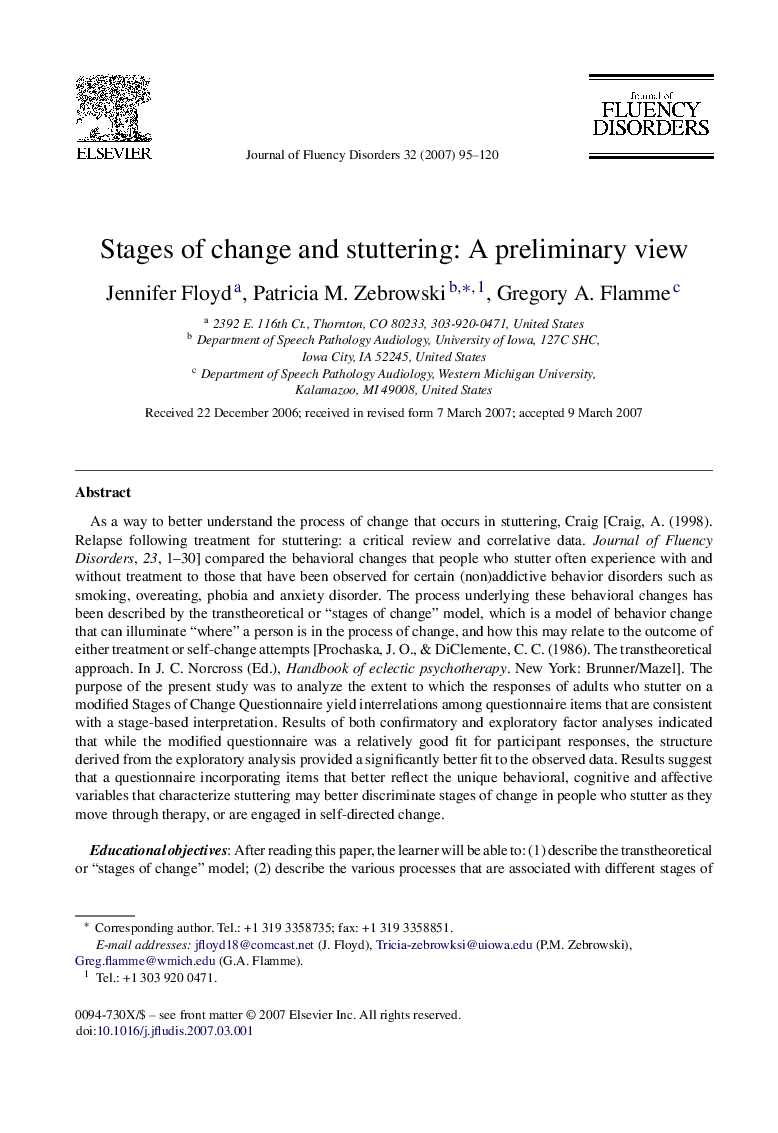| Article ID | Journal | Published Year | Pages | File Type |
|---|---|---|---|---|
| 911694 | Journal of Fluency Disorders | 2007 | 26 Pages |
As a way to better understand the process of change that occurs in stuttering, Craig [Craig, A. (1998). Relapse following treatment for stuttering: a critical review and correlative data. Journal of Fluency Disorders, 23, 1–30] compared the behavioral changes that people who stutter often experience with and without treatment to those that have been observed for certain (non)addictive behavior disorders such as smoking, overeating, phobia and anxiety disorder. The process underlying these behavioral changes has been described by the transtheoretical or “stages of change” model, which is a model of behavior change that can illuminate “where” a person is in the process of change, and how this may relate to the outcome of either treatment or self-change attempts [Prochaska, J. O., & DiClemente, C. C. (1986). The transtheoretical approach. In J. C. Norcross (Ed.), Handbook of eclectic psychotherapy. New York: Brunner/Mazel]. The purpose of the present study was to analyze the extent to which the responses of adults who stutter on a modified Stages of Change Questionnaire yield interrelations among questionnaire items that are consistent with a stage-based interpretation. Results of both confirmatory and exploratory factor analyses indicated that while the modified questionnaire was a relatively good fit for participant responses, the structure derived from the exploratory analysis provided a significantly better fit to the observed data. Results suggest that a questionnaire incorporating items that better reflect the unique behavioral, cognitive and affective variables that characterize stuttering may better discriminate stages of change in people who stutter as they move through therapy, or are engaged in self-directed change.Educational objectives: After reading this paper, the learner will be able to: (1) describe the transtheoretical or “stages of change” model; (2) describe the various processes that are associated with different stages of change; (3) summarize research findings in stages of change as they apply to a variety of clinical populations; (4) discuss the applicability of the findings from the present study to stuttering treatment, and (5) relate conventional strategies and techniques used in stuttering therapy to different stages in the process of change.
